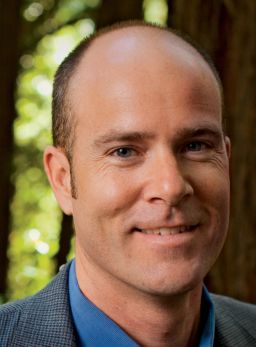Editor’s Note: Former New York Mayor Michael Bloomberg is the U.N. secretary general’s special envoy for climate change and cities and Michael Brune is executive director of the Sierra Club. The opinions expressed in this commentary are theirs.
Story highlights
Michael Bloomberg, Michael Brune: U.S. has made huge strides in reducing carbon emissions
That strengthens its hand at Paris climate talks, authors say
Here’s some good news that many Americans may not realize: Domestically, we are winning the fight against the carbon pollution that drives climate change. And by doing so, we are giving President Obama a strong hand to play when world leaders gather at the U.N.’s climate summit in Paris in five weeks to negotiate a global agreement to limit carbon emissions.
To understand how the White House finds itself in this position of strength, think back to 2010, when Congress failed to pass a cap-and-trade bill. That seemed to end any hopes of making major reductions in emissions and demonstrating American resolve to the global community. But in fact, even though the bill did not become law, the United States has already exceeded the carbon reduction goals it aimed to reach.


According to a study being released Wednesday by the Sierra Club and Bloomberg Philanthropies, 2015 U.S. economy-wide carbon emissions are even lower than they would have been had the bill passed. In fact, the United States can now say it has led the world in reducing carbon pollution over the last decade.
A primary driver is that over the past five years 130 coal-fired power plants have been retired and another 70 are preparing to retire over the next few years. Yes, cleaner energy sources have played an important role in reducing emissions. So did the Obama administration’s tougher fuel efficiency standards for cars and trucks. But the biggest factor, as the new data shows, was the decline in coal use.
How did it happen? Market forces have been moving against the coal industry for some time, due to wind and solar becoming competitive, the industry cutting wasteful demand and the natural gas boom. But the decline in coal use also stems in large measure from citizens demanding cleaner air and action on climate change. People across the country joined with the Sierra Club and many other organizations in standing up for their right to breathe clean air. Five years ago, coal pollution helped kill 13,000 Americans a year. Now, that number is down to 7,500.
The progress we have made on phasing out coal will greatly improve the prospects of a global agreement. In the past, political resistance in the United States to climate change legislation hampered our ability to persuade the rest of the world to take action. Countries could say to U.S. negotiators: “You are the wealthiest country in the world. You take action, and then we’ll consider it.” But in Paris, U.S. negotiators will be able to assert: “We are leading the world in carbon reduction. But we need all countries to be a part of the solution.”
Moreover, the phase-out of coal in the United States has only just begun. Our analysis of the new data shows that once all planned and targeted coal plant closings are factored in, the United States will exceed the Obama administration’s flagship pledge to cut electric sector carbon emissions – even if no other actions are taken – 32% by 2030. In other words, even if Congress does nothing else for the next decade, the work we’ve all already completed will allow the United States to deliver on its commitments, ensuring we can lead the way on significant international climate action in Paris and beyond.
That’s not to say, of course, that the Obama administration’s Clean Power Plan, which sets emission caps for states, isn’t important. It is. We’ll likely need to significantly exceed the administration’s emissions pledge if we’re going to avoid the worst impacts of climate change. Other countries will need to exceed their pledges as well – and the United States can set the pace by continuing to showcase a speedy coal phase-out.
The lawsuits filed last week to stop the Clean Power Plan are not likely to succeed or slow the decline of coal, given its unpopularity and market trends. Nor should other countries mistake these lawsuits for lack of American resolve and use them as an excuse to weaken their own commitments. There will always be U.S. elected officials who seek to protect special interests, but they are fighting an irreversible trend, and they should be focused on helping workers from the coal industry find new opportunities.
Cities, states and businesses will continue moving away from coal and investing in clean energy, because it helps both to protect public health and create jobs, by attracting capital and talent. It can also help homeowners and businesses save money. To name just one example, in New Mexico, keeping the San Juan coal plant open would cost families $90 million more per year than replacing the plant with cleaner power.
That’s why even as coal use and carbon emissions have shrunk, the U.S. economy has grown at a rate outpacing most of the industrialized world. Jobs in clean power have boomed, and today there are two people working in the solar industry for every one employed by the coal industry.
America is moving beyond coal – and we have helped position the White House to begin leading the rest of the world in the same direction.
Join us on Facebook.com/CNNOpinion.
Read CNNOpinion’s Flipboard magazine.



